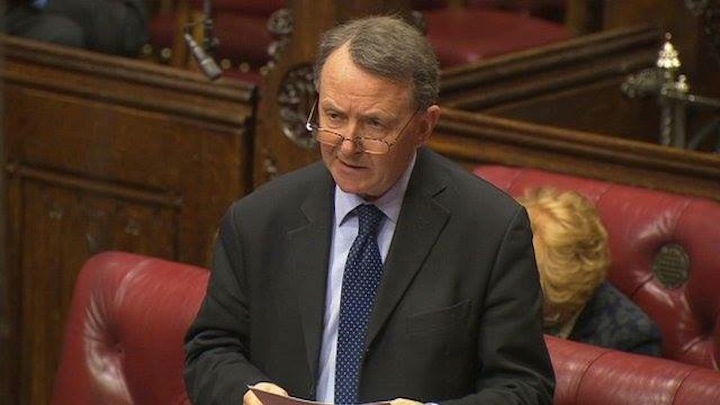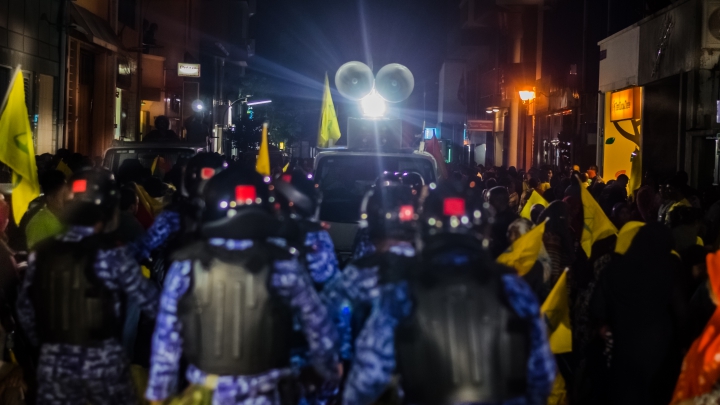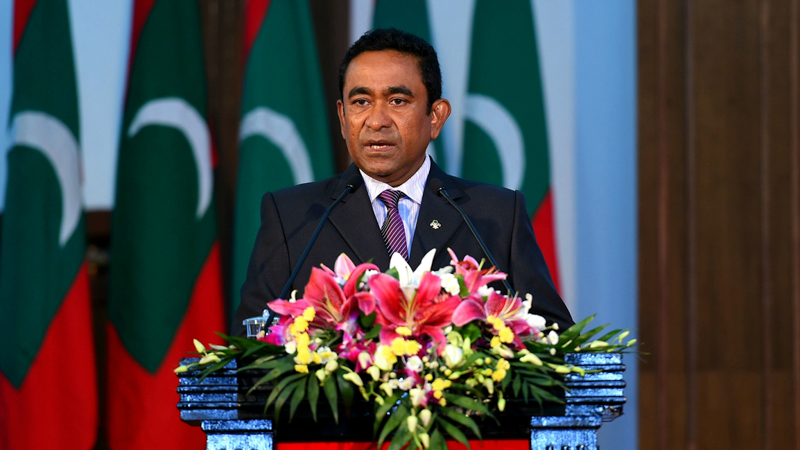The government has responded furiously to a Huffington Post opinion piece by a member of Britain’s House of Lords about the trial of former president Mohamed Nasheed, calling it inaccurate, one-sided, and “an act of gross irresponsibility”.
Lord David Alton’s article called for targeted sanctions and a boycott of tourist resorts linked to the government following Nasheed’s conviction on terrorism charges.
In an open letter to Lord Alton from the Maldives High Commission to the UK, the government said that as a member of the All-Party British-Maldives Parliamentary Group the independent cross-bench life peer had been kept regularly informed about the opposition leader’s trial.
“Nevertheless, you have decided to comment on the trial in such an inaccurate and public manner, that it will further exacerbate the domestic ramifications of the case for our young democracy. This is incredibly disappointing,” reads the letter.
The government was “a firm defender of freedom of speech,” but “it is our opinion that your authorship of an op-ed piece of such inaccuracy and one-sidedness was an act of gross irresponsibility,” it continued.
The response forms part of a diplomatic offensive by the government aiming to counter criticism of Nasheed’s trial by the United Nations, Amnesty International and several governments.
Lord Alton described Nasheed’s terrorism trial as “an extraordinary farce” and a “gross miscarriage of justice” in a piece entitled “We must send the Maldivian regime a clear, unambiguous and robust message: Their behaviour is unacceptable”, published on March 22.
The op-ed contained a “litany of inaccuracies,” the government contended, whilst uninformed commentary in the international media “only serves to perpetuate the spread of misinformation and baseless rumour”.
The High Commission’s letter noted that Nasheed was charged under the 1990 Anti-Terrorism Act, for ordering the military to “unlawfully and unconstitutionally abduct Chief Judge Abdullah in January 2012.”
“The government of Maldives would like to make it clear that there is no conspiracy by the government to unwarrantedly convict Mr Nasheed,” it added, reiterating that the executive could “neither interfere nor influence any decision of the Prosecutor General or the judiciary.”
Information wars
The High Commission repeated demonstrably false claims in letters from the government sent both to stakeholders in India and the UN High Commissioner for Human Rights.
The letter falsely claimed that Nasheed was presented before a judge a day after his arrest for “a procedural remand hearing” whilst his lawyers were not present as they had failed to register.
However, Nasheed was brought to court for the first hearing of his trial after his lawyers had been told they should have registered two days in advance, despite being unaware of the trial until the opposition leader’s arrest the previous day.
The letter suggested that Lord Alton confused “allegations that two of [the] judges were witnesses for the prosecution with the court’s refusal to hear Mr Nasheed’s defence witnesses.”
The prosecutor general and two of the three presiding judges were at Judge Abdullah’s home at the time of his arrest and had testified in a 2012 Human Rights Commission investigation.
Meanwhile, the presiding judges later refused to call any of Nasheed’s witnesses to the stand, claiming they did not appear to “negate” the prosecution’s case.
The letter also dismissed Lord Alton’s claim that police manhandled Nasheed – which was widely reported and shown on television – insisting that police followed standard procedure.
Lord Alton had meanwhile called for “targeted sanctions” against the Maldives, suspension from the Commonwealth, and Nasheed’s nomination for the Nobel Peace Prize.
“The European Union should freeze the assets of senior regime officials and their crony backers. A travel ban should be imposed on senior regime leaders,” he wrote.
“And a carefully targeted tourism boycott, aimed at resorts owned by regime associates, is needed. Sir Richard Branson has already called for such a boycott, and others should join that call.”





